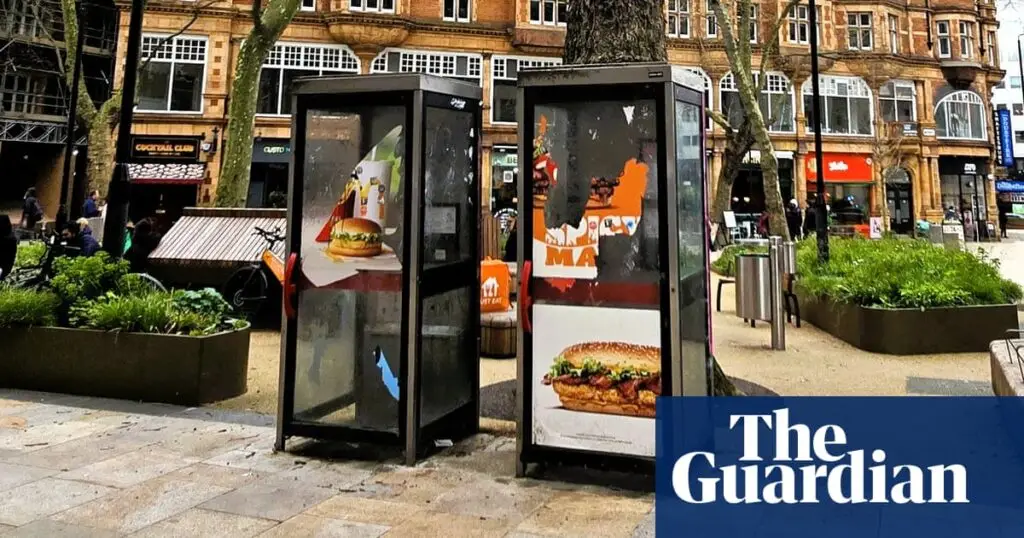Modern phone kiosks are increasingly being viewed as an eyesore on UK streets, according to a report by Create Streets. These structures, often sponsored by phone companies, clash starkly with the aesthetic charm of the classic red phone boxes that once dotted British streets.
Meanwhile, local councils are grappling with significant financial challenges to remove these kiosks. Compensation demands from corporate owners make it not only difficult but also extremely costly to take them down, even when they’re no longer in use.
Rise of Modern Phone Kiosks
The report by Create Streets highlights the growing presence of modern phone kiosks across the UK. Unlike the classic red phone boxes, these are typically made of clear glass and are often sponsored by phone companies. The thinktank argues that they have now become unnecessary and unsightly fixtures on UK streets, attracting litter and graffiti.
According to the report, these kiosks are more common in the UK, unlike in cities such as Paris or New York. Local councils are finding it increasingly difficult and costly to remove these structures due to contracts with big communications corporations. These corporations often demand tens of thousands of pounds in compensation for lost advertising revenue.
Legal and Financial Challenges
The report stresses the substantial financial burden on local councils, which spend tens of thousands of pounds to remove a single kiosk. This is largely due to the compensation demanded by the companies that own the kiosks. Create Streets suggests legislative changes to make the removal process easier and less expensive.
Currently, the law allows these companies to charge for lost advertising money, making it difficult for local authorities to justify the expense. The thinktank recommends that the law be amended so that companies are only compensated for the costs of removal, thus reducing the financial strain on councils.
Create Streets further calls for the government to amend the Town and Country Planning Act 1990. Such amendments would grant local authorities increased powers to remove these phone kiosks more easily. The thinktank also advocates for new legislation that would require communication equipment to be kept in good repair.
Decline in Phone Box Use
The necessity of phone kiosks has drastically diminished. According to Create Streets, calls from phone boxes have dropped by 99.5% from 800 million minutes in 2002 to just 4 million minutes in 2021-22. This sharp decline is primarily due to the widespread use of mobile phones.
A study conducted in central London found that out of 64 phone boxes, 38 were in severe disrepair, non-operational, or both. This statistic suggests that around 9,300 of the UK’s 15,800 phone boxes are affected by what the thinktank calls ‘box blight’.
The report notes that the presence of these dilapidated phone boxes significantly detracts from the aesthetic and functional quality of public spaces. They become magnets for graffiti, littering, and even drug use, thus escalating maintenance costs for councils.
Impact on Urban Areas
Alexander Jan, chair of the Central District Alliance, emphasises that these kiosks frequently litter urban pavements, contributing to various social issues. Jan states, “London’s pavements (and those of our fellow urban areas) are frequently littered with an array of semi-abandoned modern phone kiosks. These act as magnets for graffiti, littering, fly tipping, drug taking and worse.”
Many of these kiosks only offer value through advertising revenue for corporate owners, which is a stark contrast to their many negative social impacts. This situation exacerbates the challenges faced by councils and business improvement districts tasked with the regular cleanup and maintenance of these areas.
The Central District Alliance estimates that councils and business improvement districts spend thousands of pounds yearly to deal with these neglected phone kiosks. The financial strain on local governments is substantial, diverting funds from other critical public services.
Preserving Heritage and Improving Legislation
Create Streets also advocates for the preservation of the classic red phone boxes, which are part of Britain’s heritage. The organisation suggests that Historic England should list all remaining classic red phone boxes and ensure they are kept in good repair.
The thinktank underscores the importance of updating existing legislation, particularly the Town and Country Planning Act 1990. It recommends that the government consult and draft new laws to ensure that all communication equipment is maintained adequately. This could mitigate many of the issues currently faced by local councils.
The preservation of classic red phone boxes could serve as a reminder of the UK’s rich history, ensuring that they remain as quaint historical landmarks rather than becoming subjects of neglect and disrepair.
Recommendations for the Future
Create Streets outlines practical steps the government can take to address these issues. This includes drafting new laws to simplify the removal of modern phone kiosks and amending existing laws to reduce financial burdens on councils.
Such legislative changes could empower local councils with the necessary authority to tackle ‘box blight’ more effectively. This would not only enhance the aesthetic appeal of urban areas but also create safer and more pleasant public spaces for everyone.
The thinktank also urges the government to ensure that any new communication equipment installed in public spaces must meet specific standards of maintenance and design. These measures could drastically improve the quality of life in urban areas.
In conclusion, addressing the issue of unsightly modern phone kiosks is crucial for enhancing public spaces. Legislative changes could empower local councils to remove these kiosks more effectively, reducing financial burdens. Preserving classic red phone boxes would also help maintain Britain’s historical charm, while new laws ensuring the upkeep of communication equipment could prevent future problems.

